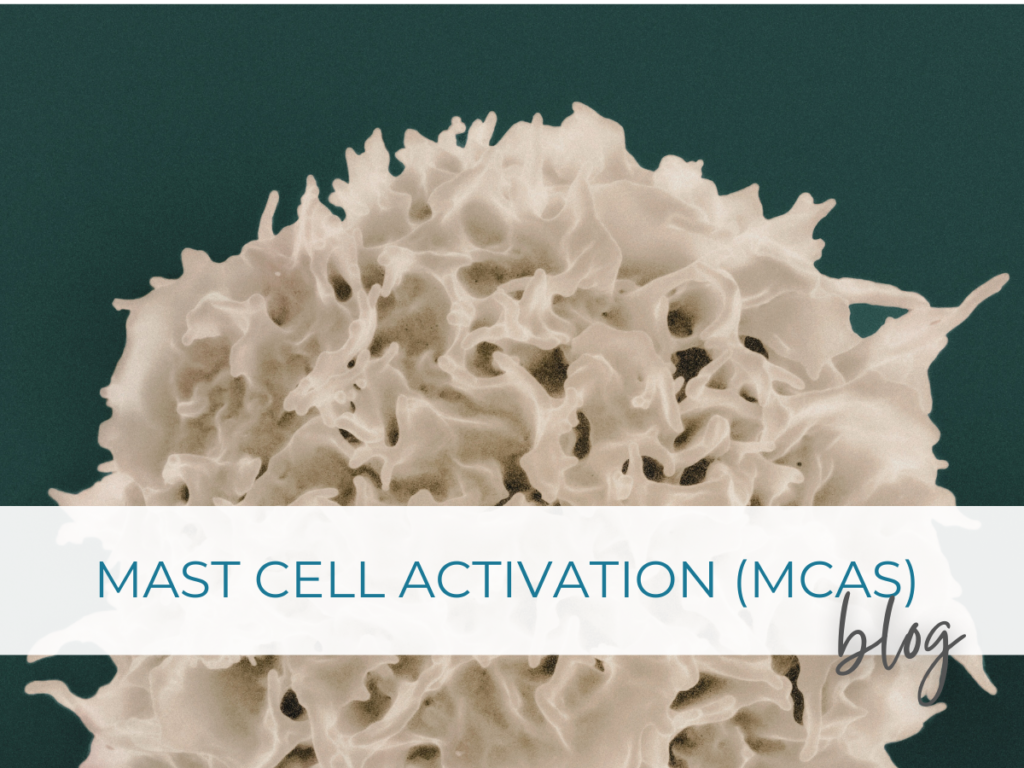So, picture this: You’re going about your day, minding your own business, when suddenly your body decides to throw a curveball. Cue the mysterious symptoms that seem to pop up out of nowhere, leaving you scratching your head (literally).
That’s where MCAS comes into play. It’s like having a party crasher in your body—those mischievous mast cells decide to go haywire, releasing all sorts of chemicals like histamine and tryptase for no good reason. And boy, do they know how to make an entrance.
What is MCAS?
Mast cells are white blood cells that are concentrated at the entrances to body tissues (ears, nose, throat, skin, genitalia, rectum), and when activated, they release over 200 signalling chemicals (e.g. histamine, prostaglandins, leukotrienes, cytokines and chemokines). These chemical mediators trigger inflammation in response to the invasion of foreign toxins, infections or chemicals, resulting in a range of chronic symptoms.
With MCAS, this function becomes upregulated and chronic, occurring at inappropriate times in response to substances that are not necessary a threat. This can lead to widespread symptoms in many different body organs and systems.
Symptoms of MCAS
MCAS is like a master of disguise, showing up in different ways for different folks. Here are some common ones to watch out for:
- Skin Shenanigans: Think hives, itching, flushing, or even swelling that seems to come out of left field. One moment you’re great, the next you’re sporting a mysterious rash. Thanks, MCAS.
- Gut Gripe: Ever feel like your stomach’s doing somersaults for reasons you can’t quite pinpoint? MCAS might be the culprit behind those random bouts of nausea, diarrhea, or abdominal pain.
- Respiratory Ruckus: Cue the sneezing, wheezing, and maybe even some difficulty breathing. MCAS can trigger asthma-like symptoms or make you feel like you’ve got a perpetual case of the sniffles.
- Brain Fog: Can’t seem to shake that feeling of mental fog? MCAS might be messing with your neurotransmitters, leaving you feeling foggy-headed or even downright fatigued.
- Cardiac Symptoms: Palpitations, lightheadedness, or sudden drops in blood pressure might have you feeling like you’re riding a rollercoaster you never signed up for. Yep, you guessed it—MCAS strikes again.
Now, here’s the kicker: MCAS loves to play hide-and-seek, mimicking other conditions like allergies, autoimmune diseases, or even just good old stress. It’s also key to understand if there are underlying triggers at play, such has a chronic infection or recent exposure to water-damaged buildings. That’s why getting a proper diagnosis often feels like solving a medical mystery.
Treatment-wise, it’s all about finding what works best for you. From antihistamines to medications, natural approaches such as quercetin, DAO and curcumin that stabilize those unruly mast cells, to a low histamine diet, there’s a whole toolbox of options to help you reclaim control over your symptoms.
So, what’s the takeaway here? If your body’s throwing you some curveballs and you suspect MCAS might be the culprit, don’t hesitate to seek help. Together, we’ll unravel the mystery and get you back to feeling your best.








